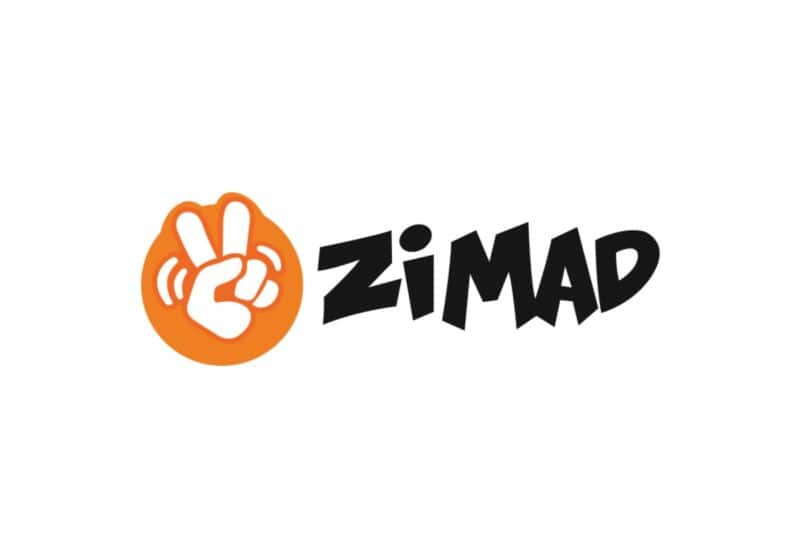Artificial intelligence is changing reality every day: it makes routine tasks easier, automates processes, surprises us with its capabilities, and makes us believe in the wonders of technology.
But it is still a new tool that raises questions. For example, who is the rightful author of content created with the help of neural networks? Which specialists in the entertainment industry can be replaced by a neural network?
Anastasia Zaitseva, Chief Communication Officer at ZiMAD, discussed these and many other questions.
AI and Gaming Industry: What Will the Future Bring?
Artificial intelligence technology is advancing so rapidly that headlines about new neural networks and their upgraded versions appear on the web literally every day. For example, Dream Machine was recently launched to create short animated clips based on a text query. It’s still a long way from human-generated content, but it’s a start.

In the next 5 years, Artificial Intelligence could make significant advances. For example, it can improve audience engagement by creating virtual and augmented reality that responds to users’ actions in the moment. It will be impossible to distinguish in-game AI from real-world AI as neural networks will use data and scenarios from out-of-game events.
Artificial intelligence has the potential to be a full-fledged collaborator in the game development process. Not only in design, but also in creating consistent storytelling and building rich and exciting worlds. AI can also help players create their own content, from user levels to game modifications.
Machine learning algorithms can generate new levels, items, and quests. This helps keep games fresh and interesting for players. AI creates content based on a predefined set of rules, and the developers do not allow it to go beyond certain limits.
This helps avoid unethical situations. Meanwhile, generative adversarial networks work as an improvement mechanism where the generator and discriminator work “against” each other, resulting in more realistic and creative content.
As for NPCs, in the future they will have human-like intelligence: they will be able to carry on complex conversations, develop relationships with the player, and change based on the player’s behavior. This depth will make the characters more interesting and unique.
The game No Man’s Sky, for example, already uses AI-driven procedural generation to create a vast and diverse universe with 18 quintillion planets. This gives users an infinite number of places to explore.

Games can also become more useful: they can impart knowledge to users and improve their psycho-emotional state. At ZiMAD, for example, we are already quickly creating relevant content for specific calendar events, using AI assistance in the initial stages of image generation or tools with AI functionality.
When developing open worlds and personalized storylines, game developers are relying on generative AI for procedural content generation and gesture-based speech animation, freeing developers from a huge amount of tedious work. One of the most common types of AI in games today, it can match a character’s gestures and tone of voice to their words.
By the way, AGI is still a long-term goal for the gaming industry—you still have to wait a few decades for its implementation. But it’s worth it: AGI should make it possible to instantly create Skyrim-level game worlds with complex narratives, interactive environments, and intelligent non-player characters.
Companies like NVIDIA and AMD are making strides in hardware capabilities and artificial intelligence technologies, but it’s not enough—the transition to AGI requires an unprecedented level of cross-disciplinary innovation and collaboration.
Ethics and Law
Artificial Intelligence is beginning to have an increasing impact on the performance of the gaming industry. It is already important to start developing ethical principles and standards for the use of its technologies. It is better to prioritize the transparency of algorithms and the involvement of stakeholders in decision-making.
The developers’ job is to ensure fairness and safety for their players. Artificial Intelligence does not yet have the flexibility of the human mind and can produce hallucinations, so it must be regularly tested and evaluated. But to ensure that innovation does not stall over ethical issues, it is important to develop a parallel culture of accountability and continuous learning.

In general, countries would benefit from coming together to regulate AI. Such cooperation would create a consistent set of rules and enforce ethical standards around the world. After all, the same games are available in different countries, not just one. Joint efforts will help address cross-border issues such as privacy, intellectual property, and cybersecurity.
Copyright is another important legal nuance. A legal framework needs to be developed to determine who owns the rights to AI-generated works: the AI developer, the user who wrote the prompt, or the AI itself. In the future, there should be new categories of copyright protection and licensing models designed specifically for AI-generated content.
Professions AI Won’t Be Able to Master
Artificial intelligence assistants are helping small businesses achieve results on par with large corporations, but they are also putting some people out of work. In the gaming industry, for example, humans no longer need to test for bugs and analyze data. Neural networks can do that themselves.
Therefore, the professional community should focus on more complex and creative tasks so as not to lose their jobs when the routine is completely handed over to artificial intelligence.
In the short and long term, neural networks will not be able to take over jobs that require creativity and emotional intelligence. This applies to creators in a variety of fields, from game designers to game scriptwriters.

Marketers and PR specialists who promote games will also keep their jobs. Every day, they find ways to reach their target audiences, interpret numbers, and create campaigns that attract new users. This requires not only knowledge of human psychology and industry trends, but also emotional intelligence and empathy.
Critical thinkers are also safe. They can be found among researchers and developers, leaders and strategists. The former possess rare professional skills, while the latter are great decision makers and human resource managers who rely on experience and intuition.
Technical professions require no less flexibility of thought, where no two cases are the same, and it is therefore impossible to work according to instructions. This is true, for example, for programmers who develop algorithms from scratch.
In order to secure employment for years to come, it is important to continually learn and adapt. This will keep your skills current and protect your professional value from inflation year after year.





